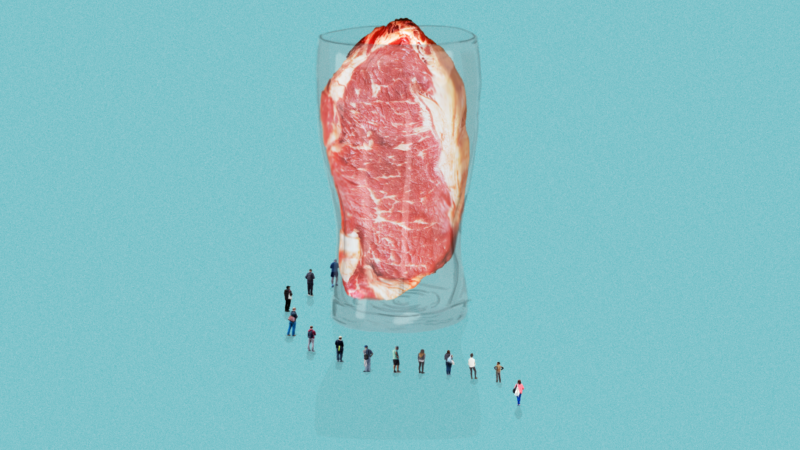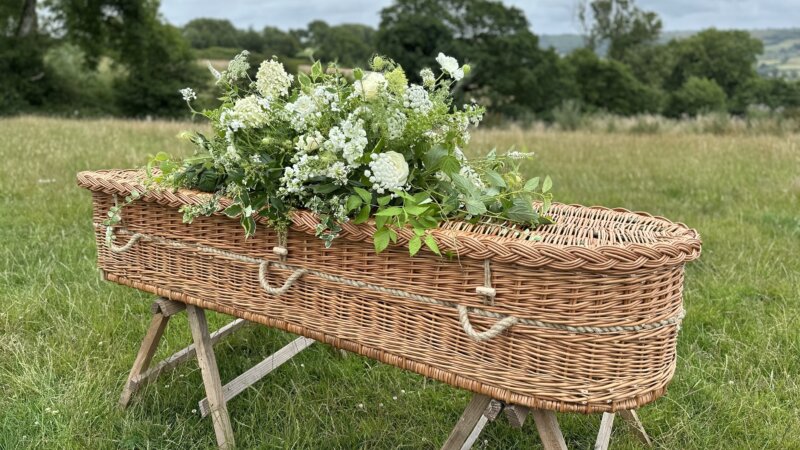Diagrams: Sam Genders on Sheffield and his new album
Sam Genders was one of the creative forces, founders and the voice of folktronica band Tunng before forming the equally psychedelic Diagrams in 2011. Released on 19 January to ward off those post-Christmas blues, Diagrams' new album, Chromatics, beautifully combines pop melodies and quirky synths, with lyrics about trying to get a grip on subjective reality one moment (‘Phantom Power’) and being filled with gratitude for love and life the next (‘Brain’).
Sam recently made the move from London to Sheffield and travelled far further in search of musical enlightenment when he took up a five-week residency programme in China last year. Kicking off the New Year with a gig at The Lexington in London in January ahead of a date at Brudenell Social Club in Leeds on 4 March, Diagrams plan to play a few UK and European dates, before coming back for a gig in Sheffield later in the year.
But before he gets itchy feet and decides to run off to play music in another far away land, we manage to pin Sam Genders down long enough for a chat about his food experimentation with pig's brains in China, writing his new album, and how Sheffield has had a positive influence on his music.
How does Chromatics compare with Diagrams’ first album, Black Light?
I think this is the most positive set of songs I've ever written. There are certainly some dark corners, but hope and gratitude are constant themes and I think that's partly the result of a new lifestyle and being in a new place - the lovely Sheffield.
It's one of the most song-focused records I've made, by which I mean the production and experimentation are very much supporting the music, melodies and lyrics, as opposed to the other way around. I worked with producer Leo Abrahams and he was just amazing - as a guitarist, bass and synth player, but also in his ability to mix the many varied instrumental or sound design elements together and still keep things sounding coherent. Much of the sound of the album is thanks to him and I feel very lucky to have worked with him.
How does the writing process for Diagrams compare to that of Tunng?
Some of it's the same as when I was in Tunng. It's me, sitting at home with a guitar and a notebook. However, this is the first album that I've written all the songs in advance and recorded and arranged at home using my laptop, before going to the studio sessions. It's always been a bit more ad hoc in the past and it made the actual recording process hugely enjoyable when that pressure of having to come up with songs was taken away. Having said that, it was always great fun writing stuff in the studio with Mike [Lindsay, of Tunng] or Mark [Brydon, who produced Black Light]. It's nice to work differently from time to time.
What is your favourite track on the album and why?
Probably the title track, because of its old fashioned melody, bleeping synths and existential angst, and quasi-spiritual lyrics.
I hear you used some strange instruments when you played with Tunng. What instruments do you play and what effect does this have on your music?
I only really play guitar properly and that's where I do the most writing, but I do play some synths and piano on the album, as well as an incredible instrument that Leo has called a Luminist Garden. It's a kind of spring reverb or delay unit with all these wires sticking up out of it like electrically-shocked hair. You move the wires with your hand and twiddle a few buttons and you get this instant euphoric gorgeousness.
To a certain extent, I have also been writing on my laptop recently, and that's probably expanded my range a bit more. ‘Brain’ came out of a fantastic Clavinova piano part that was written by my friend, Matt McKenzie, which I popped into the laptop and then built upon with guitars, beats and vocals.
Last year, you spent five weeks in the Chinese city of Changsha, collaborating with local musicians as part of the British Council’s Musicians in China residencies programme. How did that go?
Brilliantly! Unpredictably! It's was a wonderful and utterly bonkers experience. My highlights included playing alongside folk and opera performers through heavily distorted karaoke speakers to 300 bemused but warm and welcoming local people on a traffic intersection in the ancient city of Phoenix. They took me out for a slap up meal of pig’s brains and cow's intestines afterwards, which was slightly daunting, but the whole thing was a brilliant experience.
I also played to several thousand people as 'guitarist number two' in Chinese rock band, Da Mu, and after much logistical wrangling and negotiation, I put on a show of my own with a full Chinese band, which was lots of fun. I found that things are quite culturally different and things rarely happened as I expected they would. It was a five-week boot camp for learning to live in the present moment and I think it's genuinely changed me for the better.
You moved to Sheffield recently. What made you want to move here?
To be honest, it was largely financial. It's quite a challenge, trying to build a music career whilst also earning money. Being here takes off a lot of financial pressure in comparison to London. My wife and I were also attracted to being closer to the countryside and my family, as many of them are within an hour of Sheffield. Since being here, we've really fallen in love with the environment of the city, its beautiful, wild surroundings and the lovely, friendly atmosphere. It's been a very good move.
diagramsmusic.co.uk
samandsofia.co.uk
Photo by Paul Heartfield / Chrissie Abbott )





